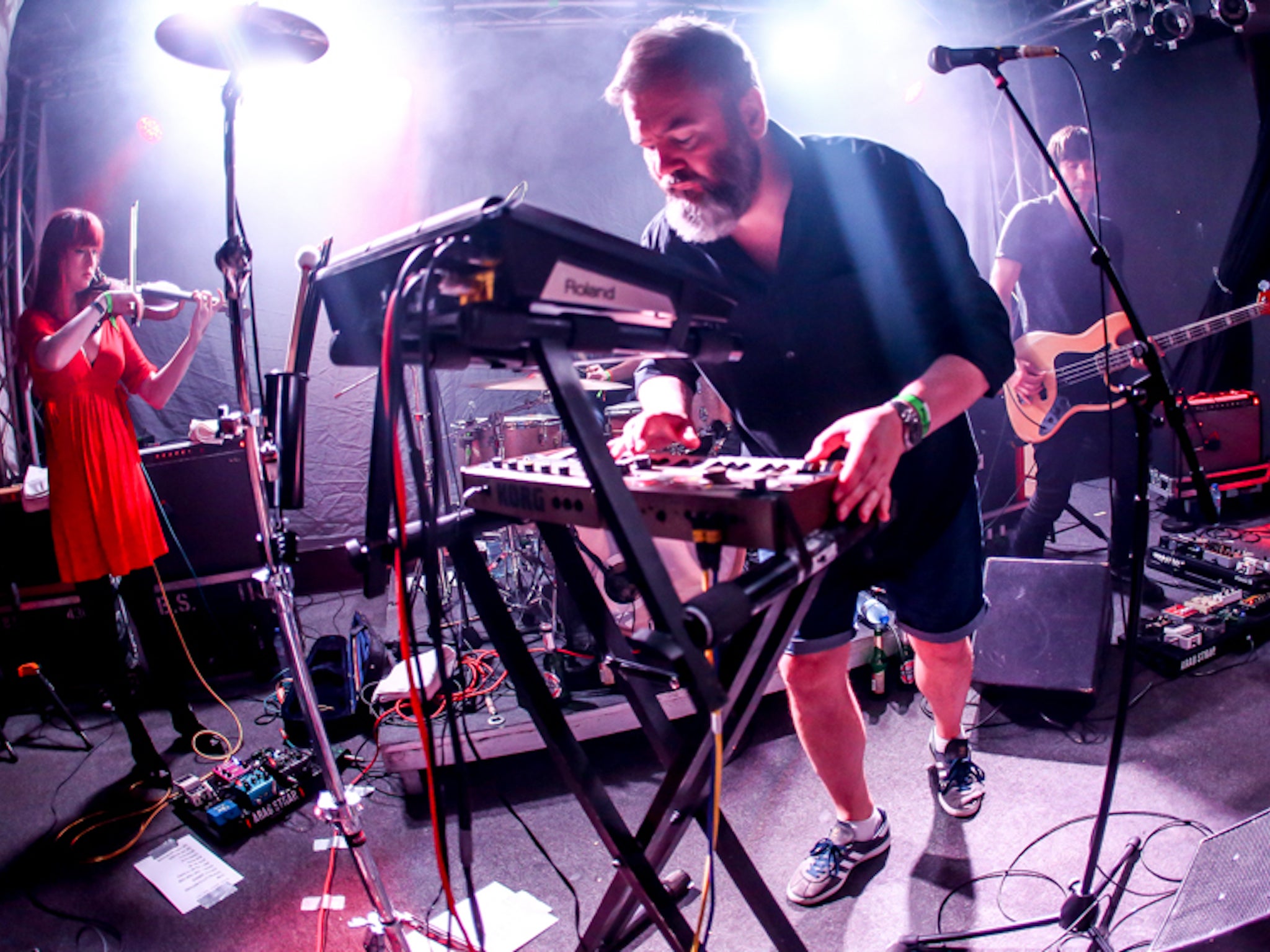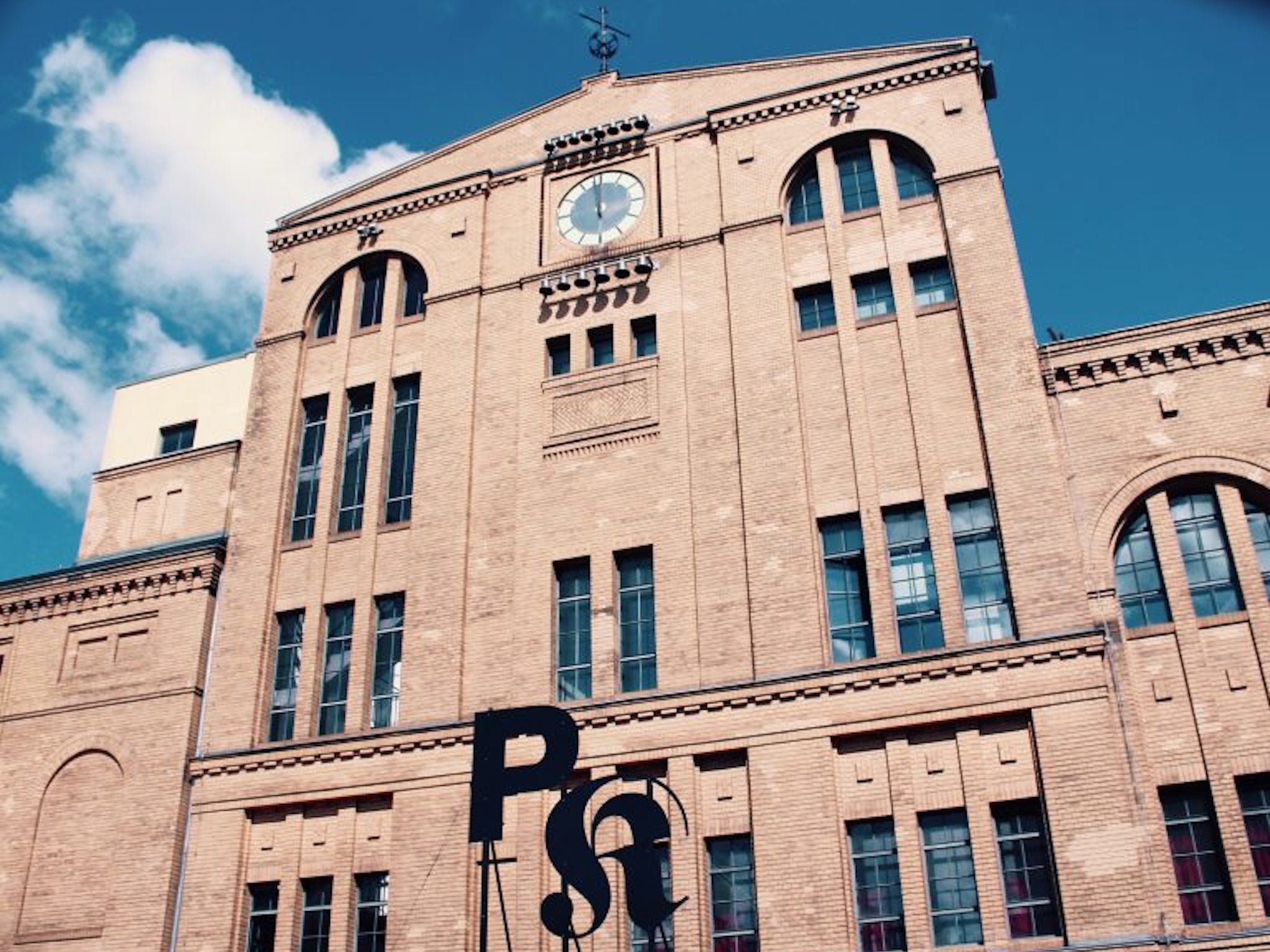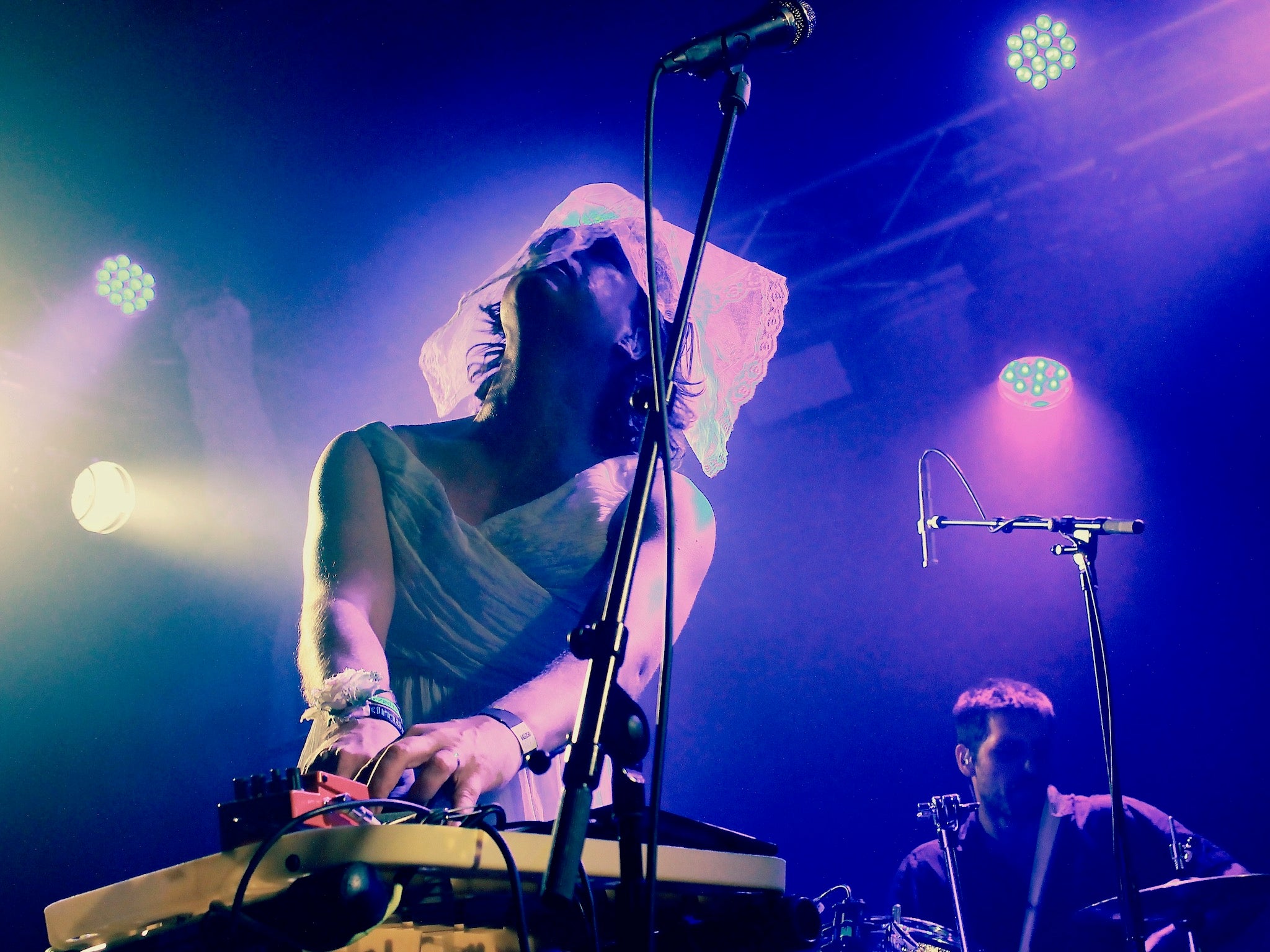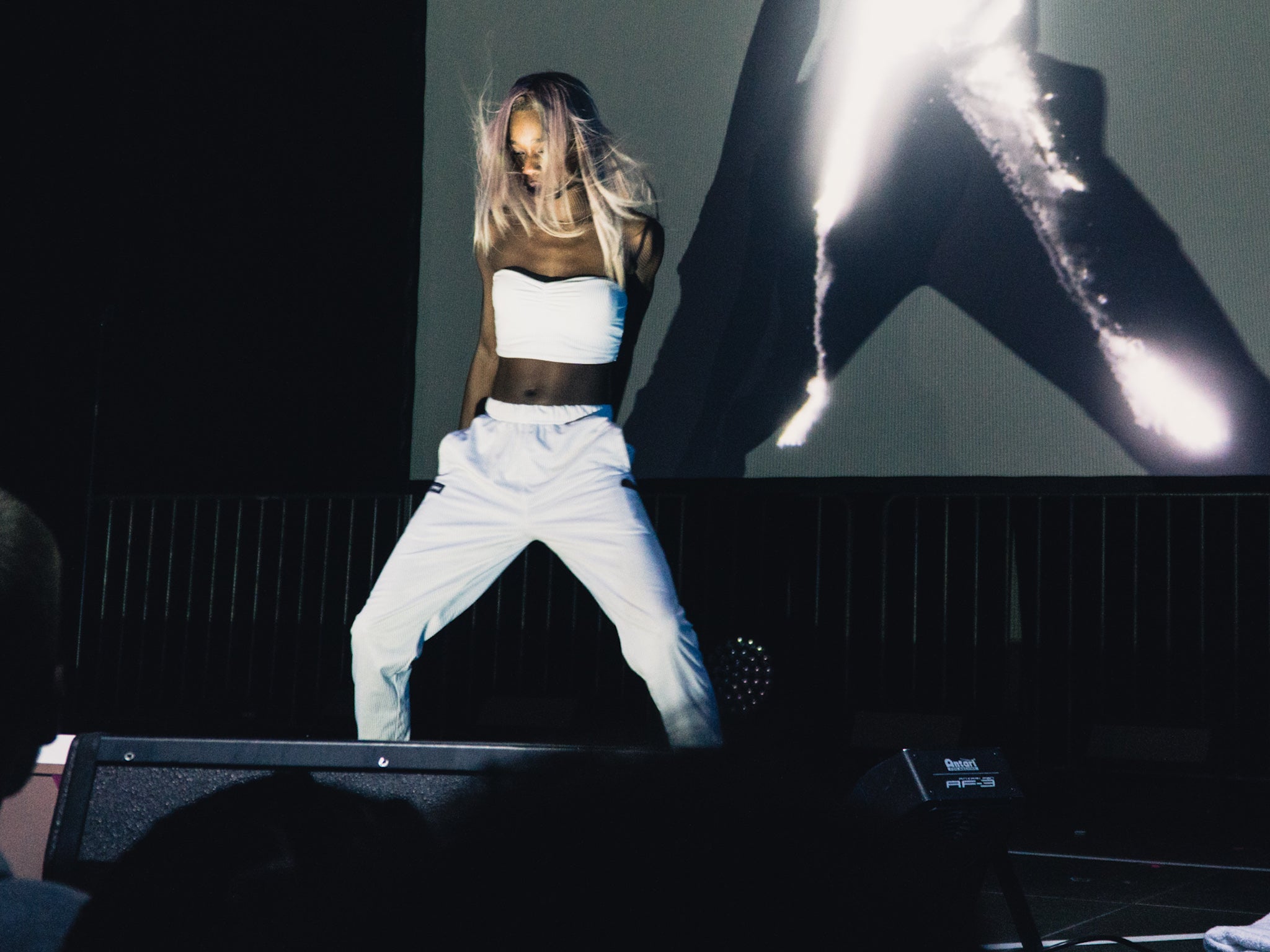Pop-Kultur review: Liars, Arab Strap and Shirley Collins play Berlin festival boycotted by Young Fathers
Young Fathers withdraw because of the addition of the Israeli embassy logo, joining Arab artists Emel Mathlouthi, Islam Chipsy & EEK and Hello Psychaleppo

Controversy precedes the 2017 edition of Pop-Kultur, an industry showcase and music festival in Berlin. The festival takes place in the looming Kulturbrauerei, once the world’s biggest brewery and now a sprawling cultural complex comprising cinemas, theatres and dingy clubs. The venue hosts a diverse array of global acts for talks, performances, dancing, quizzing and networking.
On any one day you could see Solihull grime artist Lady Leshurr giving her version of reggae classic Bam Bam by Sister Nancy, or a talk on the whitewashing of pop music, or you could wander through an exhibition of hype stickers (the ones on plastic wrapping around new records that most people discard).
The festival has expanded since it started three years ago, thanks to funding partnerships including some money from the German Federal Government. But one partnership ends up being so controversial some acts pull out.
“Due to the addition of the Israeli governments (sic) logo to the list of partners and in solidarity with the Palestinian people, Young Fathers regrettably will not be performing at Pop-Kultur festival in Berlin this week,” Young Fathers, a Mercury-Prize winning Scottish act, tweet a couple of days before the event.
They are the eighth act to withdraw because of the addition of the Israeli logo, including Arab artists Emel Mathlouthi, Islam Chipsy & EEK and Hello Psychaleppo. The logo was added after Pop-Kultur accepted €500 in funding from the Israeli embassy in Germany towards travel costs for its artists.
The funding immediately wins the ire of the international Boycott, Divestment, Sanctions movement (BDS) - the same organisation that led the campaign against Radiohead playing in Tel Aviv in July. Some journalists travelling to the festival receive emails from BDS asking them to boycott.
But the logo stays on the festival website. The organisers release a short statement saying: “We believe that the only way to deal with conflict in this world is through critical discourse and dialogue. As artists and cultural workers, we in particular have the responsibility for building relationships and networks across borders, even if we disagree on certain points.”

Their diversity credentials are assured. More than half the line-up is female, easily outdoing equality records in the UK, where analysis this summer showed that eight of 10 top slots at festivals were occupied by male acts.
Shirley Collins, an English folk singer, gives a frank talk about returning to singing after losing her voice for 30 years. She talks about being an English folk singer in the time of Brexit.
At 82, she has overcome her fear of singing: “I've just decided I will keep on singing until it's ludicrous. All the traditional singers I liked were old timers anyway.”

At the other end of the spectrum, London DJ and electronic artist Throwing Shade plays beneath the low ceiling of the Alte Kantine. An ethno-musicology graduate, she draws from a broad palette of African and Asian sounds to come up with evocative spoken word pieces over euphoric Hacienda synths.
Next door in the Kesselhaus (German for boiler room), the concrete walls and steel girders have been preserved, creating the perfect industrial setting for Atlanta-based ABRA and a collaboration with Fractal Fantasy. ABRA’s digital avatar dances in different guises over her wonky r’n’b, a silvery spectre that is just as fascinating as the music.

There’s room for men on the line-up, too. Bristol punk band IDLES play on the Thursday in Frannz Club, their topless guitarist with a handlebar moustache getting sweatier by the minute. They are delighted to be warming up for Liars, who frontman Joe Talbot calls “one of the best bands in the world right now”. He’s not wrong.
Angus Andrew, the only constant member of Liars, seems right at home in the dingy venue, the wedding dress he is wearing for the TFCF tour looking more ragged each time he performs.
How To Dress Well surprises everyone with his excellent German during a talk in the Kino. Tom Krell grew up in the US but spent time in Berlin during his career and is now writing a thesis on German philosophy. He seems to barely scrape the surface of his thoughts on the condition of modern pop music, talking confidently about capitalist anxiety, the problem with acts selling fewer live tickets, the death of music blogs and the disappointment of working on the Kanye album.
Then there’s Arab Strap, the sentimental Scottish indie band, who close the festival on Friday evening with a packed out show in the tiny Frannz Club. They haven’t released an album for 12 years, but reformed to celebrate their 20th anniversary.
Their star has risen in the last couple of years thanks to th release of a film made by frontman Aidan Moffat called Where You’re Meant To Be, in which Moffat performs reinterpretations of traditional Scottish folk songs. They play to delighted Germans, many of whom must have thought they’d never get to hear the songs live.
Despite the boycott, Pop-Kultur succeeds in crossing cultural divides, boosting the proportion of female acts and representing a far more diverse set of artists than most festivals. Controversy may have preceded this festival, but it doesn’t define it.
Join our commenting forum
Join thought-provoking conversations, follow other Independent readers and see their replies
Comments
Bookmark popover
Removed from bookmarks